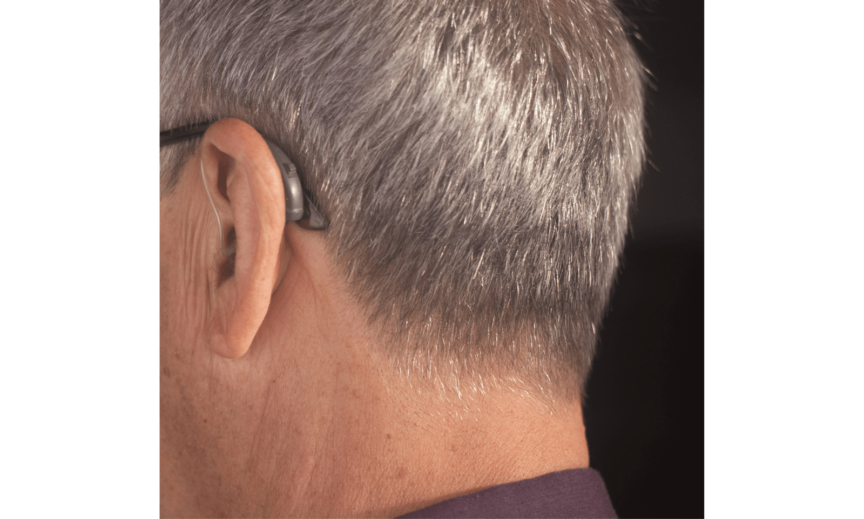- What to Know About Hearing Loss Accommodations in School - July 11, 2024
- Sign of Hearing Loss - June 10, 2024
- The Economic Benefits of Early Detection - May 6, 2024
Hearing loss is a pervasive issue that affects millions of people worldwide. It can have a significant impact on our quality of life, relationships, and overall well-being. Despite this, many individuals hesitate to seek help, and hearing professionals often encounter common excuses from patients who resist investing in hearing aids. In this article, we’ll explore some of these excuses and provide insights into the latest advancements in hearing loss prevention, diagnosis, and management. We will also discuss future possibilities in hearing healthcare and underscore the importance of early detection.
Common Excuses for Avoiding Hearing Aids
Denial:
Many individuals downplay their hearing difficulties, attributing them to aging or noisy environments. They may insist that their hearing is “not that bad.” This denial can lead to delayed intervention, causing further deterioration.
Stigma:
The stigma associated with hearing aids is a significant barrier. Some people associate hearing aids with old age or a sense of weakness. This perception prevents them from seeking the help they need.
Cost:
The financial aspect is another excuse we often encounter. Some individuals perceive hearing aids as prohibitively expensive, and they fear the potential financial burden.
Fear of Technology:
With the rapid advancements in hearing aid technology, some people feel overwhelmed by the prospect of using new devices. They worry they won’t be able to adapt or use them effectively.
Ineffectiveness:
Past experiences, or anecdotes from friends and family, might lead some to believe that hearing aids are ineffective or do not provide the expected improvement in hearing.
The Latest Advancements in Hearing Loss Prevention, Diagnosis, and Management
Prevention:
Hearing loss prevention begins with awareness and education. Protecting your hearing from loud noises, such as using earplugs at concerts or on construction sites, is crucial. Recent research has also uncovered potential therapies to prevent hearing loss by targeting specific cellular mechanisms, offering hope for future interventions.
Diagnosis:
Early diagnosis is paramount in addressing hearing loss effectively. Recent developments in audiology have led to more accurate and accessible hearing assessments. Remote diagnostic tools, smartphone apps, and online hearing tests make it easier for individuals to monitor their hearing health and seek professional guidance when needed.
Personalized Solutions:
Hearing aids have come a long way, and modern devices are tailored to individual needs. Advanced algorithms adjust sound settings in real-time, adapting to different listening environments. Some even offer connectivity to smartphones and other devices, allowing for seamless integration into daily life.
Tinnitus Management:
Tinnitus, a common symptom of hearing loss, can be distressing. Innovative therapies, including sound therapy and cognitive-behavioral approaches, are showing promise in reducing the impact of tinnitus on one’s life.
Cochlear Implants:
For those with severe to profound hearing loss, cochlear implants are a transformative option. Ongoing research has led to improved implant designs, providing even better speech recognition and sound quality.
The Importance of Early Detection
Early detection of hearing loss is the linchpin of effective management. Research has demonstrated that untreated hearing loss can lead to a range of physical, emotional, and cognitive challenges. Some studies even suggest a link between untreated hearing loss and a higher risk of conditions like dementia.
By addressing hearing loss at its onset, individuals can significantly improve their quality of life. Early intervention not only preserves hearing but also enhances one’s ability to communicate, engage socially, and maintain cognitive function. It’s worth noting that hearing professionals are here to support and guide you on this journey, offering compassionate care every step of the way.
Future Possibilities in Hearing Healthcare
As we look to the future, the field of hearing healthcare holds exciting prospects. The integration of artificial intelligence (AI) into hearing aids promises even more personalized and adaptive solutions. AI can analyze an individual’s listening habits and adjust settings accordingly, providing an unparalleled listening experience.
Furthermore, regenerative medicine research may yield groundbreaking therapies for hearing loss. Scientists are exploring ways to repair damaged hair cells within the inner ear, potentially restoring hearing for those with sensorineural hearing loss.
Virtual reality (VR) and augmented reality (AR) technologies are also being considered for hearing rehabilitation. These immersive experiences can help individuals adapt to hearing aids, practice communication skills, and overcome the initial discomfort of using new devices.
Compassion and Support
As hearing professionals, our primary goal is to provide compassionate care to those facing hearing difficulties. We understand the common excuses and barriers that may deter individuals from seeking help. However, we urge you to remember that hearing loss is a manageable condition, and hearing aids can be life-changing devices when used correctly.
If you or a loved one is struggling with hearing loss, don’t let these excuses hold you back. Reach out to a hearing professional for a thorough evaluation and discussion of your options. We are here to guide you through the process, address your concerns, and help you achieve better hearing.
Hearing loss is a widespread issue, but it doesn’t have to be a life sentence. With the latest advancements in prevention, diagnosis, and management, as well as promising developments on the horizon, there’s never been a better time to address hearing loss. Early detection and intervention are key, and hearing professionals are here to provide the care and support you need. Let’s break down the barriers, overcome the excuses, and embark on a journey to better hearing and an improved quality of life.

